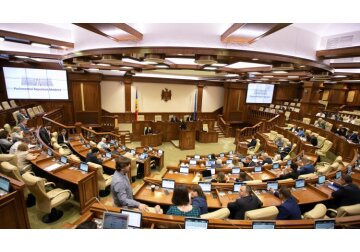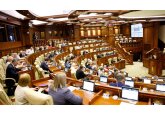
A special commission has been set up in the Moldovan Parliament to study the decision-making process to control inflation over the past 18 months.
The creation of the special commission is explained by high inflation and price growth rates, as well as by the recommendations of the Supreme Security Council of May 27. “The global economy is facing an unprecedented wave of inflation, and the countries of the world, including Moldova, are struggling to stop it. The society should know about the decisions made for this, about how effective and high-quality they are,” Dumitru Alaiba, chairman of the commission on economy, budget and finance, argued the need to create a commission. It is planned that the special commission will hear the parties and persons involved in the decision-making process on controlling inflation and monetary policy over the past 18 months, and will submit a report to Parliament within a month. Initially, it was assumed that the special commission would include 7 people: the chairman, deputy chairman, secretary and 4 members of the commission, who will represent all parliamentary factions: PAS - 4 people - the chairman and 3 members of the commission; block of communists and socialists - 2 people - deputy chairman and 1 member of the commission; party "Sor" - 1 person - secretary of the commission. However, representatives of the bloc of communists and socialists and the Sor party refused to delegate their representatives to its composition. As a result, the commission will include 4 PAS deputies: commission chairman Dumitru Alaiba, secretary - Adrian Balutel, members - Artur Mija and Marina Morozova. Dumitru Alaiba noted that recently the annual inflation rate in Moldova has significantly exceeded the predicted level and continues to grow. It increased from 13.9% in December 2021 to 22.2% in March 2022, and reached 27.07% in April and continues to grow. Inflation accelerated due to an increase in prices in the regional market for food and energy resources, which led to an increase in prices for them in the domestic market and an increase in tariffs for gas and heat energy. At the same time, the adjustment of tariffs, rising fuel prices and the progressive increase in wages led to an increase in the costs of economic agents, which were gradually reflected in the price of goods and services. // 02.06.2022 — InfoMarket







